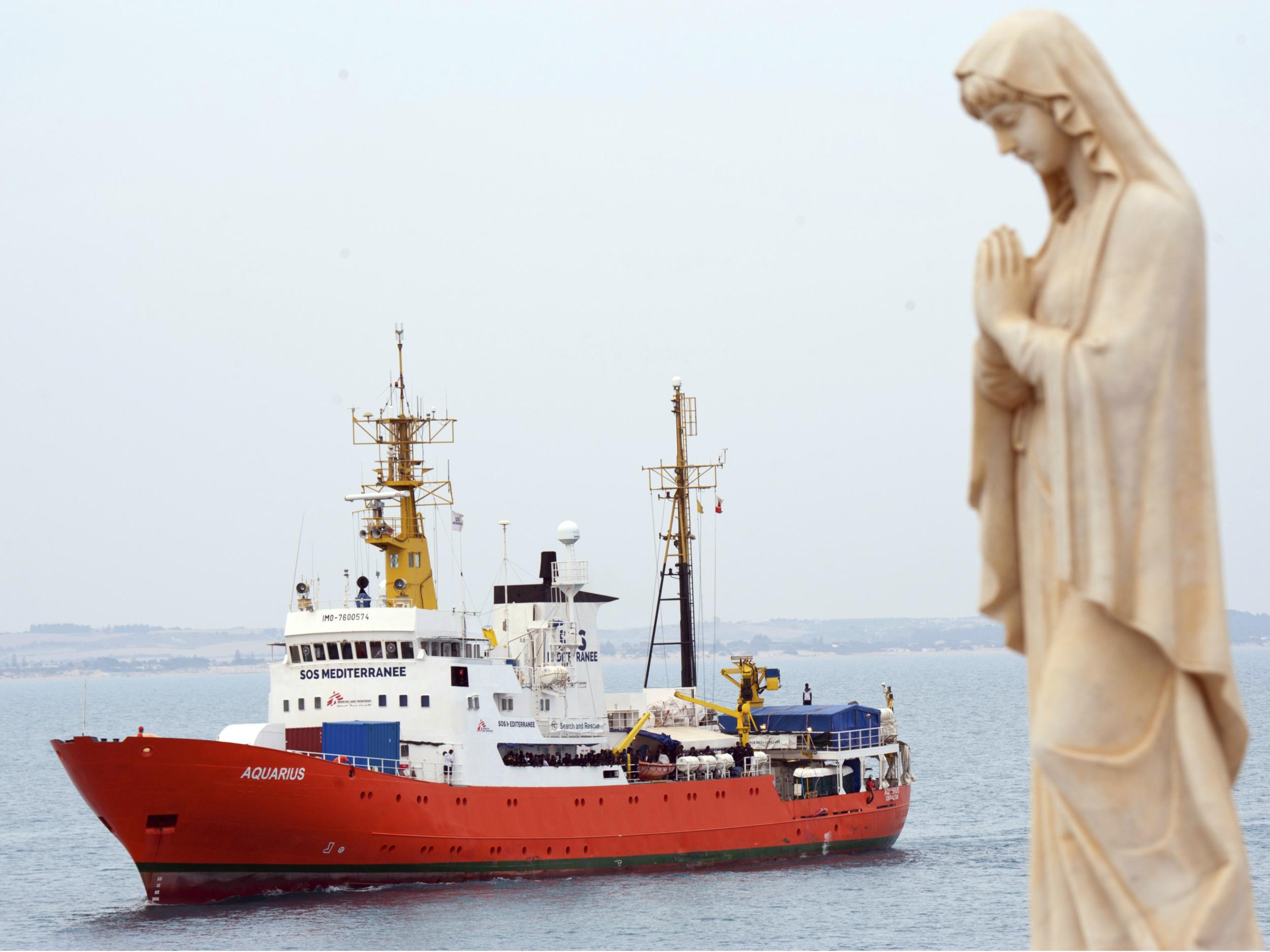Italian foreign ministry summons French ambassador as tensions mount over port closures to refugee rescue boats
'Italy cannot accept hypocritical lessons from France,' new prime minister says
Your support helps us to tell the story
From reproductive rights to climate change to Big Tech, The Independent is on the ground when the story is developing. Whether it's investigating the financials of Elon Musk's pro-Trump PAC or producing our latest documentary, 'The A Word', which shines a light on the American women fighting for reproductive rights, we know how important it is to parse out the facts from the messaging.
At such a critical moment in US history, we need reporters on the ground. Your donation allows us to keep sending journalists to speak to both sides of the story.
The Independent is trusted by Americans across the entire political spectrum. And unlike many other quality news outlets, we choose not to lock Americans out of our reporting and analysis with paywalls. We believe quality journalism should be available to everyone, paid for by those who can afford it.
Your support makes all the difference.The Italian foreign ministry has summoned the French ambassador to Rome for an explanation of President Emmanuel Macron’s remarks about refugees stranded in the Mediterranean after Italy refused to let a rescue ship dock.
Tensions between the countries have risen after France criticised Italy’s new administration for blocking access to its ports for a rescue vessel carrying 629 refugees it had picked up off the coast of Libya.
Rescuers have had to begin a three-day journey to Spain to deliver the refugees to a port.
On Tuesday Mr Macron said Italy was acting “irresponsibly” and not meeting its obligations under international maritime law.
His party’s spokesman, Gabriel Attal, went further, saying: “The Italian position makes me vomit.”
After Italian deputy prime minister Luigi Di Maio initially dismissed the criticism as being “rich coming from them”, new prime minister Giuseppe Conte, who is due to meet Mr Macron in Paris this Friday, issued a strongly worded statement defending the refusal to let the boat dock.
“Italy cannot accept hypocritical lessons from countries that have always preferred to turn their backs when it comes to immigration,” Mr Conte said.
The situation escalated further on Wednesday when Rome’s foreign ministry summoned the French ambassador to explain the French premier’s remarks on the matter.
The refugees, including 123 unaccompanied children and seven pregnant women, spent three days stranded on the overcrowded Aquarius rescue vessel as political wrangling continued.

Two Italian navy ships have now picked up the majority of the refugees from the boat, and the three ships are on their way to Valencia after the new Spanish prime minister, Pedro Sanchez, unexpectedly agreed to let them dock there.
However the ships now face worsening weather conditions with waves of up to 4 metres and winds of 35 knots.
A further consequence of Italy’s hardline stance is that a US warship which assisted German rescue NGO Sea-Watch by picking up 41 survivors and 12 bodies from the sea off the Libyan coast on Tuesday, is now also being refused entry to Italian ports.
Sea-Watch chairman Johannes Bayer said: “If the Aquarius wasn’t stuck on the way to Valencia, maybe those people could have been rescued.”
However, an Italian coastguard vessel carrying 932 refugees and two dead bodies was granted permission by Rome on Wednesday to dock at the Sicilian port of Catania. Sea-Watch said the decision highlights the “double standards” of the Italian government.
“We will not change (our position) on ships belonging to non-governmental organisations,” interior minister Matteo Salvini said in an interview with the Corriere della Sera newspaper on Wednesday.
“Ships belonging to foreign organisations and flying foreign flags cannot dictate Italy’s immigration policy,” added Mr Salvini, who is also head of anti-immigrant party the League.
The Aquarius is operated by NGOs SOS Mediterranée and Médecins Sans Frontières.
On Tuesday MSF told The Independent: “The current standoff in the Mediterranean Sea appears to be less about search and rescue at sea and more about the lack of European states’ responsibility sharing for asylum-seekers, and lack of intra-EU relocations – in other words, a broken asylum system.”

Join our commenting forum
Join thought-provoking conversations, follow other Independent readers and see their replies
Comments